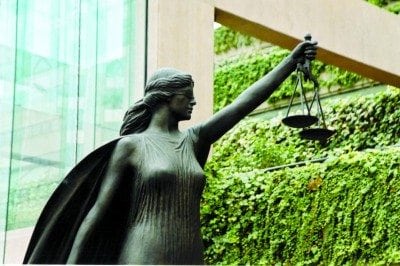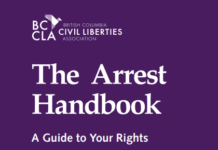ON February 16, the Attorney General of Canada filed a notice of appeal in a bid to overturn last month’s historic judgment that ordered an end to indefinite solitary confinement in prisons across Canada.
The decision, which struck down the federal government’s administrative segregation regime as unconstitutional, was the result of a legal challenge brought by the BC Civil Liberties Association (BCCLA) and John Howard Society of Canada (JHSC).
Josh Paterson, Executive Director of the BCCLA, stated: “We find it shocking that our federal government has chosen to appeal this decision when the government came into office on a promise to put an end to indefinite solitary confinement. Instead, this appeal shows they intend to fight to save a system that breaks the law and makes our society less safe.”
Paterson pointed out that after the court win, the BCCLA and the Canadian Civil LIberties Association wrote to the federal ministers of Justice and Public Safety urging them to end court battles. He stated: “Having won in court, we extended a hand to the government to work together to fix this problem to no avail. Despite us reaching out, to-date, the federal government has given us no response other than filing this appeal.”
The B.C. Supreme Court issued judgment in favour of the BCCLA and JHSC on January 17. The court held that the laws governing administrative segregation are unconstitutional in that they permit prolonged, indefinite solitary confinement, fail to provide independent review of segregation placements and deprive inmates of the right to counsel at segregation review hearings. The regime violates prisoners’ Charter section 7 rights because it places prisoners at increased risk of self-harm and suicide and causes psychological and physical harm. The court further held that the laws were unconstitutional because they discriminate against the mentally ill and disabled, and against Indigenous prisoners.
Catherine Latimer, Executive Director of John Howard Society of Canada, states: “The problems with solitary confinement have been obvious for decades, with recommendations for reform coming from all quarters of society, including the Correctional Investigator of Canada and the United Nations Committee Against Torture. Now, the B.C. Supreme Court has recognized that the practice discriminated against Indigenous people and persons with mental illness. It is deeply unfortunate that, rather than accept that truth and work to correct it, the government wishes to ignore it.”
Caily DiPuma, Acting Litigation Director for the BCCLA: “We know that prisoners continue to spend weeks, months and even years in small cells without meaningful human contact. They continue to suffer from severe physical and psychological harm because of that isolation. And we know that some will be driven to end their lives there. The government’s decision to appeal is another example of justice deferred for prisoners – some of the most vulnerable and marginalized members of our Canadian society. We will not turn our backs to them, nor will Canadians. We will fight this appeal.”












